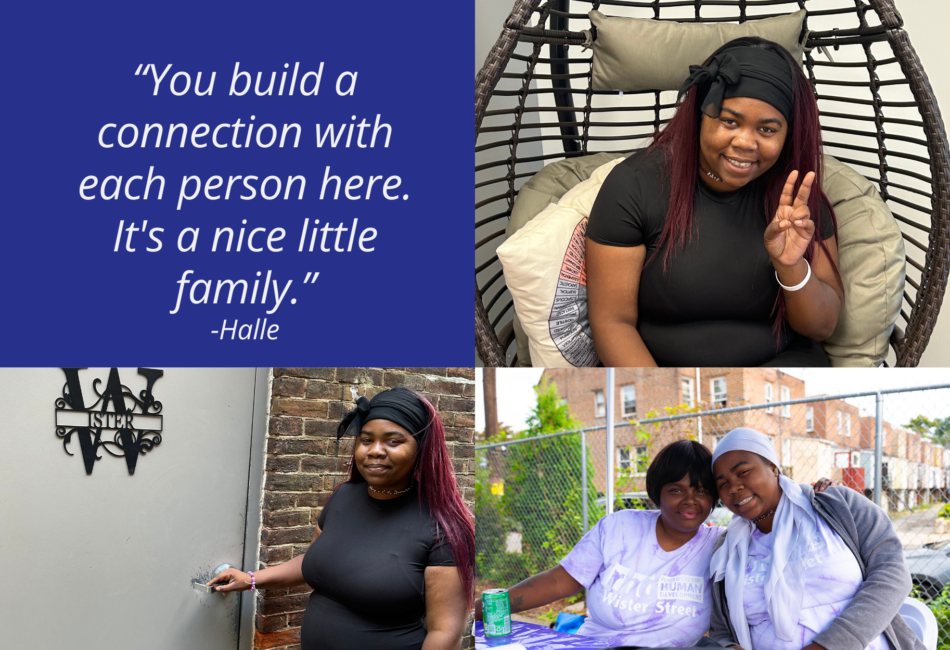Finding Strength and Support: Halle’s Journey at RHD Wister Street

August 26, 2024
Two years ago, Halle was in one of the darkest periods of her life. After enduring traumatic events and struggling with her mental health, she was incarcerated. Through mental health court, she received a lifeline and became a participant at RHD Wister Street. Since 2000, Wister Street has provided a therapeutic residential space for individuals with persistent mental illness and forensic histories. This transitional program helps participants develop vital social, emotional, and life skills, fostering independence for a permanent living situation.
Halle’s early days at the program’s expansion site were challenging; she admits she “gave them hell” when she first arrived. However, she soon realized that Wister Street was a place where she could rebuild her life. At Wister Street, Halle learned new skills and discovered a side of herself she didn’t know existed. She adjusted to her responsibilities, including chores, community meetings, and dialectical behavioral therapy. There was also time for fun activities; she particularly enjoys playing games like Monopoly and UNO. Without the care and attention from the staff, Halle believes she “wouldn’t be doing as well as I am right now.”
Today, Halle is a 26-year-old student at Community College of Philadelphia. The Wister Street staff are with her every step of the way, from reading her essays to helping with math. “They don’t let me quit. They always encourage me to do the best that I can,” she says. Halle’s transformation at Wister Street wasn’t just about gaining skills; it was about changing her outlook on life. She has learned to communicate better, manage her emotions, and handle responsibilities like managing her finances. Though she admits she’s still working on some things, like her impatience, she feels more equipped to face the future.
Halle emphasizes the support system that both staff and fellow participants provide. “You build a connection with each person here. It’s a nice little family.” This sense of community played a crucial role in Halle’s recovery. She specifically mentions Nicole Brown, the program director, noting, “Miss Nicole doesn’t play. She’ll let you know she cares about you.” For Halle, Wister Street is more than just a program; it’s a community where she found the strength to overcome her past and the support to build a brighter future. Her story is one of resilience, growth, and newfound hope.
To learn more about Wister Street and support their mission, visit https://www.rhd.org/program/wister-street/.


